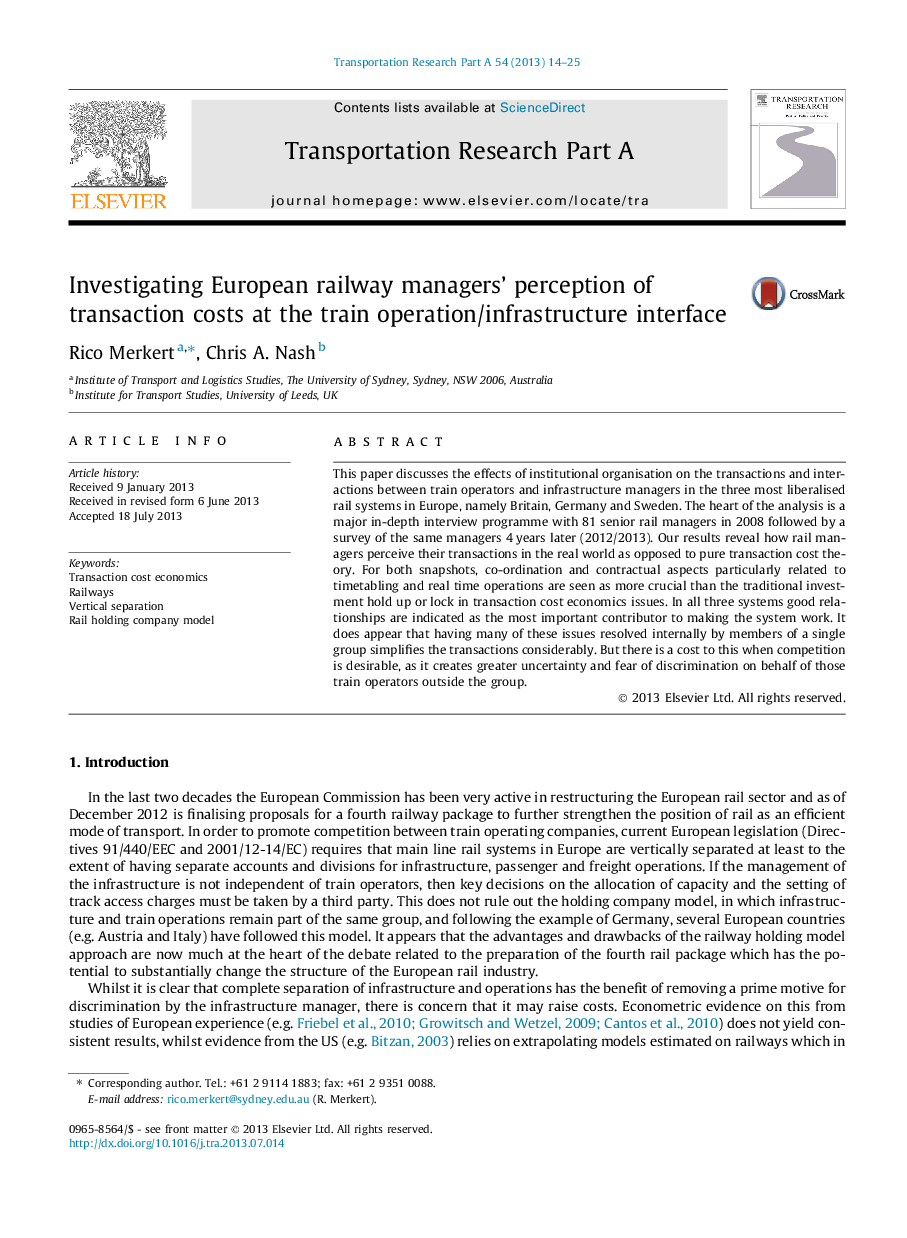| Article ID | Journal | Published Year | Pages | File Type |
|---|---|---|---|---|
| 6781898 | Transportation Research Part A: Policy and Practice | 2013 | 12 Pages |
Abstract
This paper discusses the effects of institutional organisation on the transactions and interactions between train operators and infrastructure managers in the three most liberalised rail systems in Europe, namely Britain, Germany and Sweden. The heart of the analysis is a major in-depth interview programme with 81 senior rail managers in 2008 followed by a survey of the same managers 4Â years later (2012/2013). Our results reveal how rail managers perceive their transactions in the real world as opposed to pure transaction cost theory. For both snapshots, co-ordination and contractual aspects particularly related to timetabling and real time operations are seen as more crucial than the traditional investment hold up or lock in transaction cost economics issues. In all three systems good relationships are indicated as the most important contributor to making the system work. It does appear that having many of these issues resolved internally by members of a single group simplifies the transactions considerably. But there is a cost to this when competition is desirable, as it creates greater uncertainty and fear of discrimination on behalf of those train operators outside the group.
Related Topics
Physical Sciences and Engineering
Engineering
Civil and Structural Engineering
Authors
Rico Merkert, Chris A. Nash,
